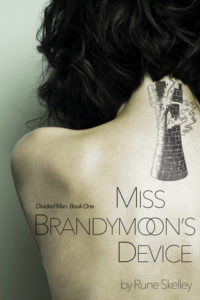
In honor of this milestone, we pulled our stichomancy ingredients from cat-related sources. Why cats? Because cats have nine lives, and this is number nine-hundred in the chain story. Also, we happen to like kitty cats, despite having puppy dogs as assistants. They like cats too. Lady Marzipan in particular loooves them so much that she gets too excited and the kitties get too scared. So she’s really never actually gotten to meet one. It’s tragic, really.
Anyway, enjoy this team-up installment constructed with snippets from the official site of the Cat Fanciers Association as well as an assortment of Wikipedia entries purr-taining to all things feline.
As usual, Jen goes first and only relinquishes her grip on the keyboard once the first prompt phrase has been incorporated. Then Kent takes his turn, and so on, alternating until the deed is done.
- the same as 15 years ago, but in a different order
- baffles everyone
- pretty heavy for a youngster to pick up and carry around
- has a malevolent attitude toward Stuart
- earned the right to bear a name
- inflicting harm on his roommates for perceived injustices
- who ran for mayor
- regularly post photos of him climbing into rental cars
- napping in unusual places
- notorious for being an expert night cat burglar
Tune in next time parts 899 & 900 Click Here for Earlier Installments
I recognized the Colloquillian ambassador from a scandal more than a decade ago. To save face, he’d changed his name, but he hadn’t done a very good job of it. All the letters were the same as 15 years ago, but in a different order. The details of the scandal make even less sense, a story that baffles everyone while actually scandalizing very few. I hoped the ambassador didn’t have any children, though, because speaking from experience, any sort of scandal involving one’s parent is pretty heavy for a youngster to pick up and carry around in their mind.
Fleur stepped back to my side and helped me get the chaos inside my clothes under control. While stabilizing the final few persistent bells and whistles, she covertly whispered to me, “Our intelligence reports that the ambassador has a malevolent attitude toward Stuart, so don’t bring him up. Whoever he is.”
According to my Colloquillian former lover (the one who taught me what I know of the language), her countrymen had very, very strong opinions about how a person earned the right to bear a name as grand and revered as Stuart. One of their folk heroes was the main figure in a legend about a lonely plumber inflicting harm on his roommates for perceived injustices, which was how he earned that right. The only other man deemed worthy of the Stuart sobriquet was my lover’s brother, who ran for mayor of the capital and was elected at age 14. His term in office was defined by scandals of his own, as the press would regularly post photos of him climbing into rental cars when the whole populace knew he wasn’t old enough to drive.
Both Stuarts were known for napping in unusual places, but it wasn’t clear to me if that was a requirement of the “job” or a perk. A final detail popped up from deep in my memory, that one of the Stuarts was notorious for being an expert night cat burglar. But which one?
bonus points for using them in order
about stichomancy writing prompts
try our stichomancy writing prompt generator!
![]() Either way, time is always the issue.
Either way, time is always the issue.


